Researching for your Ph.D. can feel like juggling a million things at once. You need to find papers, organize notes, keep up with citations, and somehow stay on top of your deadlines. Sounds overwhelming, right? The good news is that there are some fantastic AI research tools that can make your life easier. Then, you can focus on what really matters: making an impact with your research.
Here’s a list of 7 best free/freemium tools designed to help Ph.D. students cut through the chaos and focus on what matters most: meaningful research. These tools are all simple to use, highly effective. Whether you’re sorting through endless papers or struggling with information overload, these tools can help you work smarter, not harder.
1. Consensus.app: Your Instant Answer Tool
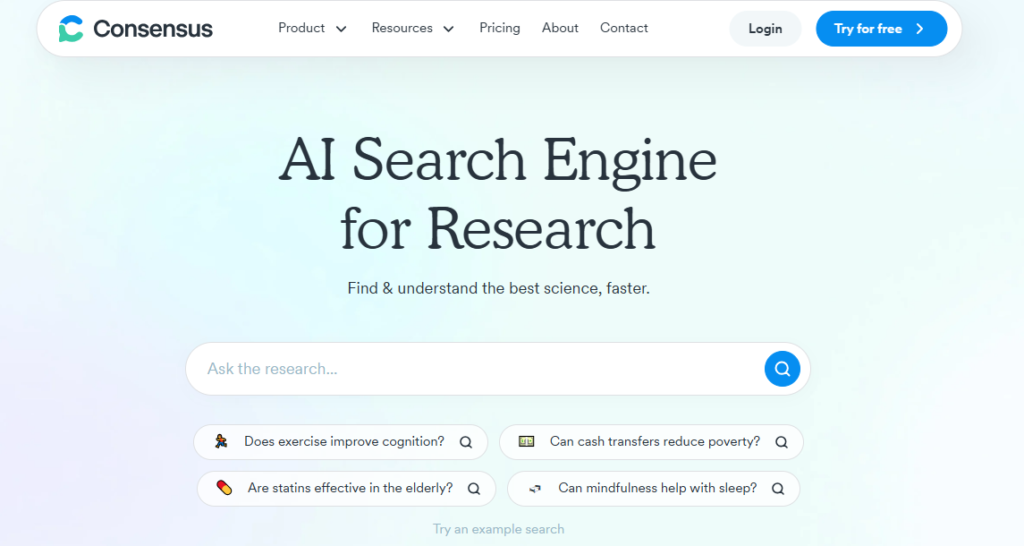
Imagine this: You have a specific research question, but finding reliable answers is like digging through a haystack. That’s where Consensus shines. This AI tool specializes in delivering precise answers directly from scientific literature.
Instead of skimming dozens of articles to find a clue, Consensus summarizes what the research says. For example, if you’re exploring a topic like the impact of climate change on crop yields, you can ask your question in plain language. The tool scans through research papers and gives you clear, summarized answers.
With its focus on AI research, Consensus is perfect for anyone looking to save time while getting trustworthy information.
2. Paperguide: Discover, Read, Write and Manage Research with Ease
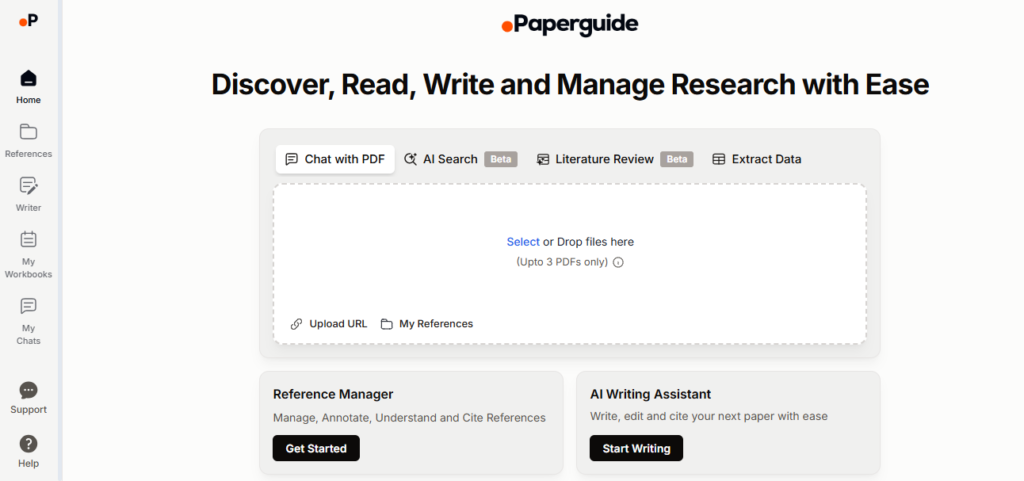
Managing research materials in different formats can be frustrating. Some come as PDFs, others as Word documents, and then there are video lectures or YouTube talks with valuable information. Paperguide makes all of this simple.
Paperguide allows you to upload PDFs, DOCX files, or even paste URLs directly. It quickly analyzes these materials, pulling out key points so you don’t waste time digging through pages. Need to reference insights from a YouTube video? Just drop in the link, and Paperguide extracts the main ideas for you.
One standout feature is its chat-sharing function. Found something interesting? Share it with your research group in a few clicks. This tool isn’t just for Ph.D. students—it’s a gem for anyone working on AI research or academic projects.
3. Afforai: Your Natural Language AI Research Assistant
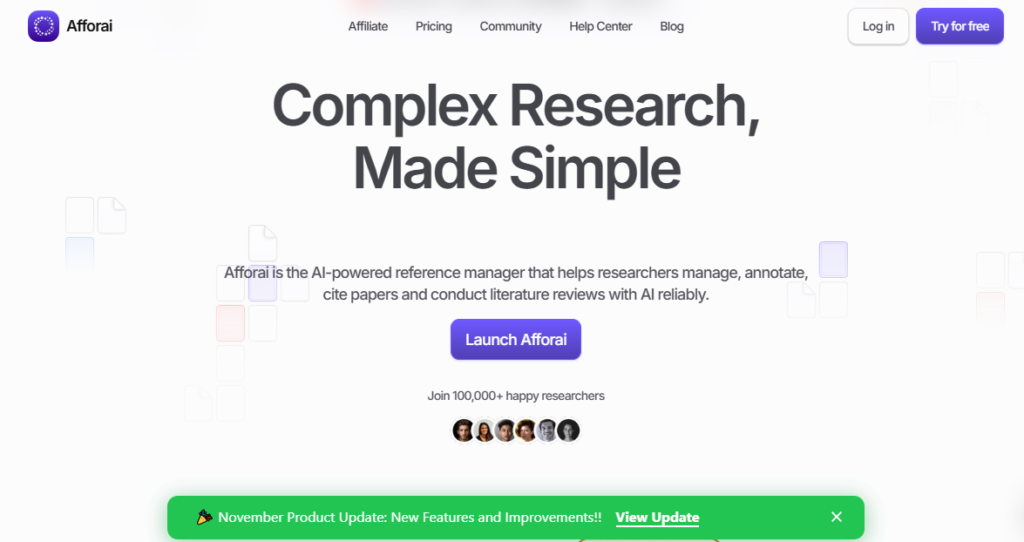
Have you ever wished research databases understood how people actually talk? Afforai does just that. It’s an AI tool that lets you search academic papers in normal, conversational language.
Instead of typing rigid keywords like “machine learning in agriculture,” you can simply ask, “How is AI helping farmers improve crop growth?” Afforai not only finds the answers but also chats with multiple papers at once. Even better, it provides answers with proper citations, saving you hours of manual work.
For collaboration, Afforai offers a workspace-sharing feature. You can share your findings with team members instantly, making group projects or co-authored papers much smoother to manage. It’s especially useful for digging into AI research, where the database is often dense and technical.
4. Julius AI: Your All-in-One AI Research Analyzer
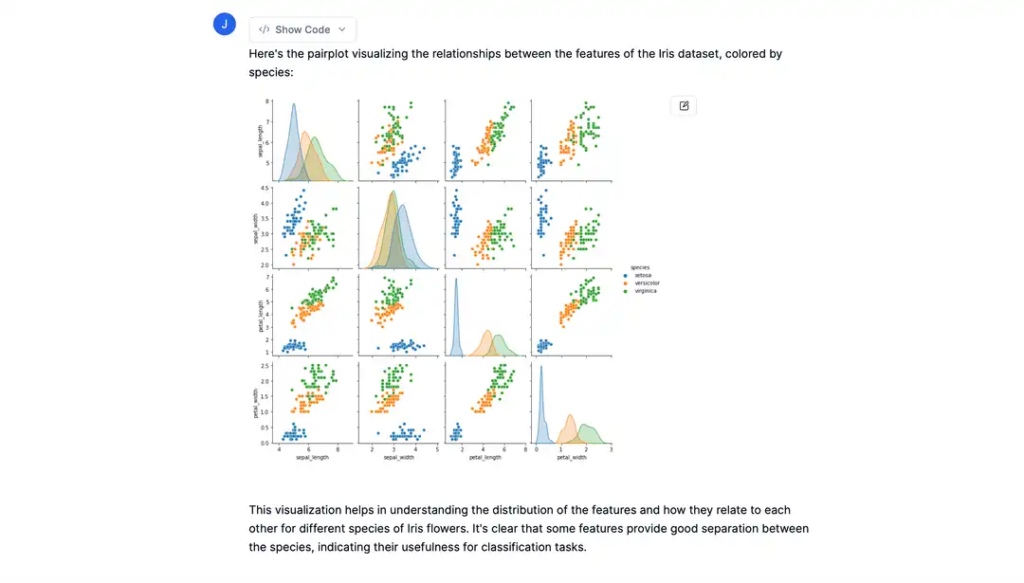
Sometimes, you need more than just papers. You might have data files, spreadsheets, or other research materials that need analysis. Julius AI takes care of all that. This tool isn’t limited to searching papers—it also analyzes your data and helps you write better literature reviews.
For instance, if you’ve got Excel sheets with experimental data, Julius AI can help spot patterns or trends. It also works with PDFs, CSV files, and other common formats. Need help summarizing a lengthy research article? Julius AI steps in and delivers a concise overview.
Its ability to combine up-to-date internet access with advanced analysis tools makes it a powerhouse for Ph.D. students diving into AI research or any other field.
5. Semantic Scholar: Your Search and Recommendation Engine
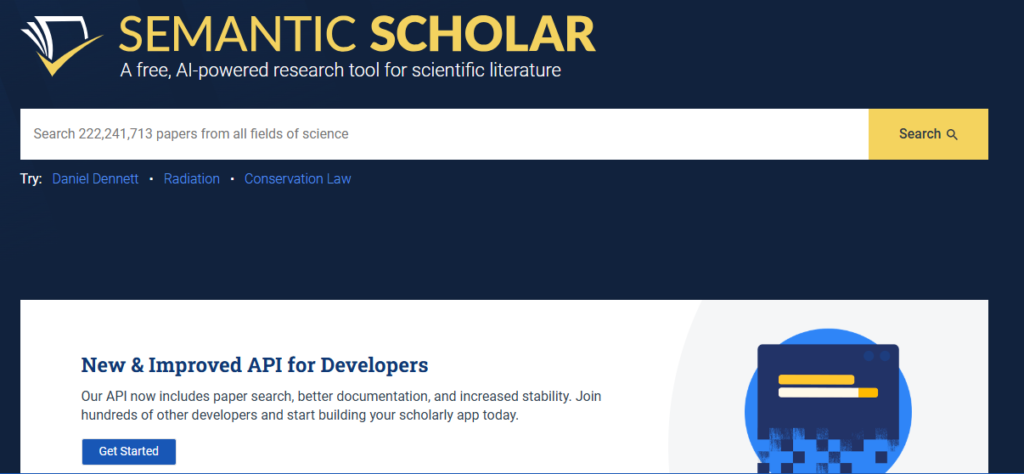
The hunt for relevant papers can feel endless. You search and scroll, only to find articles that don’t quite match your needs. Semantic Scholar simplifies this process with its extensive database of scientific papers.
What makes it different is its ability to provide highly relevant search results. Type in your topic, and Semantic Scholar gives you papers that are not only related but also highly rated within your research community. Another cool feature? It generates recommendations based on the context of your searches. So, if you’re researching a niche AI topic, Semantic Scholar will suggest related works you might not have thought of.
This tool is like having a research librarian dedicated to helping you find the best resources, quickly and easily.
6. Iris.ai: Your Personalized Paper Finder
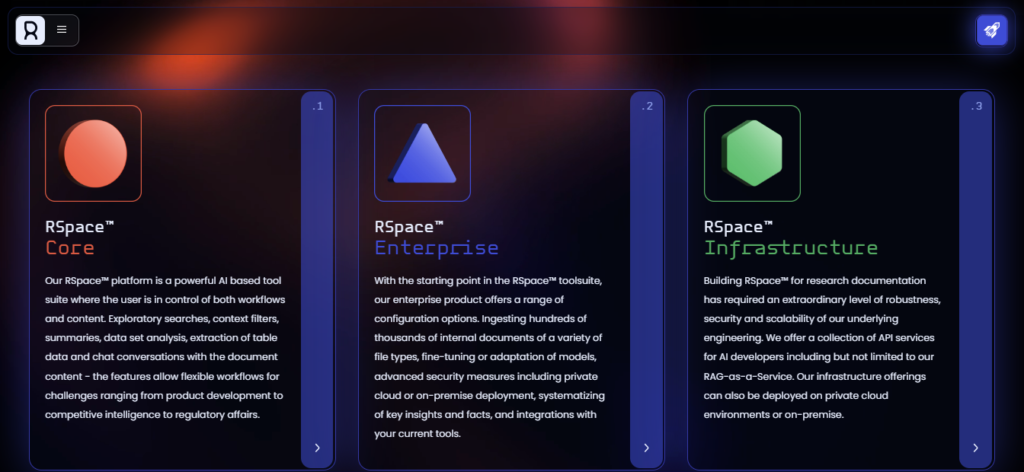
Ever feel overwhelmed by a long reading list? Iris takes that headache away. It analyzes your reading list and recommends papers that fit your research topic perfectly. Plus, it’s packed with smart filters and search options to narrow down exactly what you need.
One of Iris.ai’s best features is its alert system. Once you’ve set your criteria, it will notify you whenever a new paper matches your search. For example, if you’re studying neural networks in AI research, Iris will keep you updated on fresh studies in that area.
This tool also lets you extract specific sections or data points from papers, saving time and helping you stay laser-focused on your topic.
7. Elicit: Your AI Research Question Helper
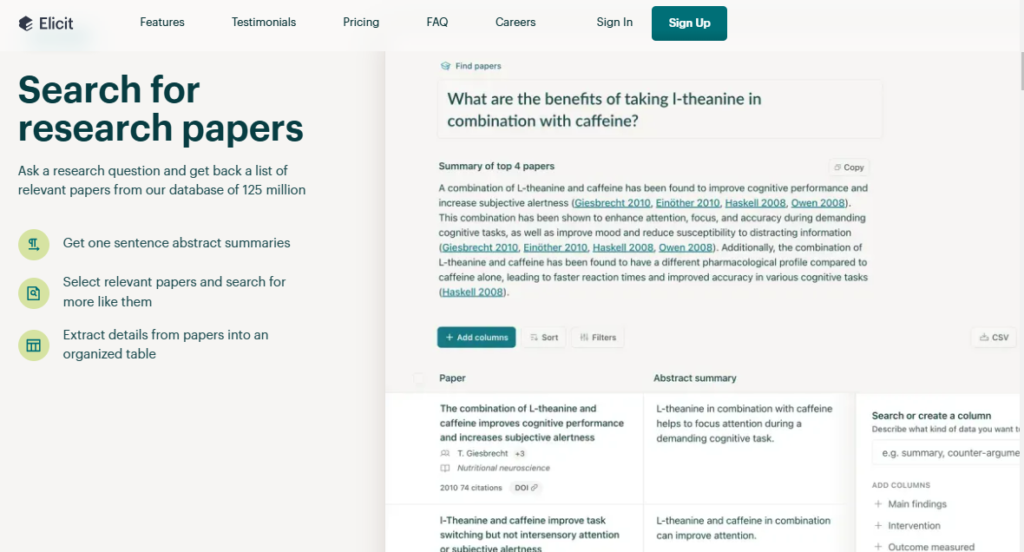
When you’re knee-deep in your research, forming the right questions can make all the difference. Elicit is an AI-powered tool that helps you ask better research questions and find answers in seconds.
Here’s how it works: You type your question into Elicit, and it scans a massive database of over 125 million papers. The result? A list of relevant studies, complete with summaries, extracted data, and synthesis of findings. It even identifies gaps in the research, which can spark ideas for your next study.
For example, if you’re investigating AI’s role in mental health treatment, you can ask, “How does AI improve therapy outcomes?” Elicit won’t just give you papers—it’ll help you understand trends, results, and limitations in the field.
How These AI Tools Make Ph.D. Research Manageable
Each of these tools solves a specific research challenge, from finding papers and analyzing documents to organizing citations and generating new ideas. By using them, you’re not only saving time but also making your research more focused and productive.
For Ph.D. students and anyone diving into AI research, these tools are game-changers. They help cut through the noise, streamline your work, and let you focus on meaningful discoveries.
Here’s a quick overview of how these tools can help you:
- Consensus.app: Get straightforward answers from literature, saving time on tedious searches.
- Paperguide: Analyze multiple file types and share insights easily with collaborators.
- Afforai: Use human language to find research papers and chat with multiple sources at once.
- Julius AI: Combine internet research with data analysis and literature review creation.
- Semantic Scholar: Find and get recommendations for the most relevant research papers.
- Iris.ai: Manage long reading lists and get notifications for new, relevant studies.
- Elicit: Ask research questions and receive organized answers from a massive database.
Simplify Your Ph.D. Journey with AI Tools
Ph.D. research is hard work, but it doesn’t have to feel impossible. With tools like these, you can simplify your workflow, stay organized, and focus on what really matters: making a contribution to your field. From finding the right sources to managing massive data sets, these free tools can transform the way you approach academic research.
So, what’s stopping you? Give them a try and see how much easier your Ph.D. journey can be. And if you’ve already used any of them, feel free to share your experience in the comments – your insights could be just what another student needs to discover their next favorite research tool!
